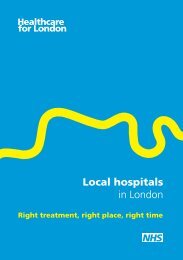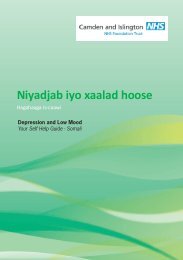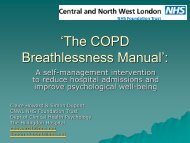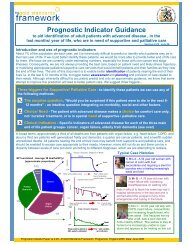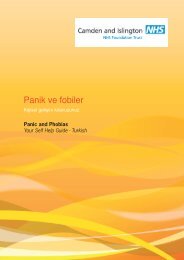NCEPOD: Trauma - Who Cares? - London Health Programmes
NCEPOD: Trauma - Who Cares? - London Health Programmes
NCEPOD: Trauma - Who Cares? - London Health Programmes
Create successful ePaper yourself
Turn your PDF publications into a flip-book with our unique Google optimized e-Paper software.
CHAPTER 8 - Head injury managementHypoxia, hypercapnia, hypocapnia and acidosis are knownto be secondary insults that can worsen outcome in the headinjured patient. Hypocapnia is also detrimental to the headinjured patient as it causes cerebral vasospasm and canexacerbate cerebral ischaemia. Clearly these physiologicalderangements are likely to occur in severely injured patients,therefore the aim of prehospital care and a well-organisedemergency department response should be to minimise andrapidly correct these changes.Given the importance of normoventilation and avoidance ofboth hyper and hypocapnia in the setting of traumatic braininjury the high number of patients without blood gas analysisis unacceptable.Figure 39. Glasgow Coma Score and intubation120Number of patients100806040PrehospitalHospitalNo evidence20015 13-14 09-12 04-08 03 NotrecordedGlasgow Coma Score96







